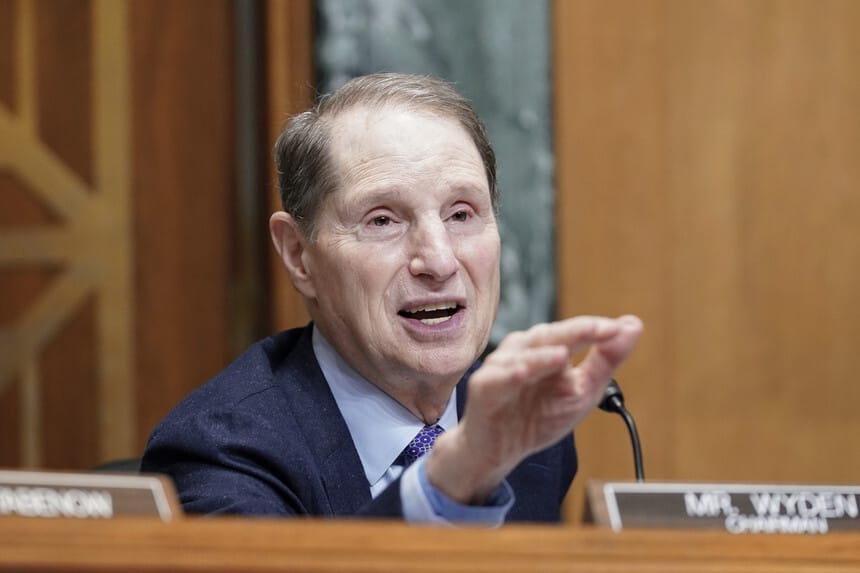- Herbal's Newsletter
- Posts
- Wyden Bill’s Momentum Signals a Turning Point for the Hemp Beverage Industry
Wyden Bill’s Momentum Signals a Turning Point for the Hemp Beverage Industry

Understanding the Wyden Bill and What It Means for Hemp Beverages
The Wyden Bill, introduced recently, seeks to clean up the regulatory confusion surrounding hemp products and aims to keep these products out of children’s hands while providing much-needed clarity for the industry. It proposes establishing a clear federal framework for hemp-derived products, which could be a game-changer for brands looking to navigate the current patchwork of regulations. This bill has garnered significant attention from industry stakeholders, who see it as a critical step toward legitimizing and expanding the hemp beverage market.
Key Highlights from the Wyden Bill
The bill focuses on ensuring that hemp products are safely regulated, accurately labeled, and responsibly marketed. Some of the key aspects include:
Defining the Difference Between Hemp and Marijuana: It emphasizes clear labeling and regulation to differentiate hemp-derived products from marijuana, particularly in the THC content to ensure consumer safety and prevent underage use.
Age Verification and Restrictions: The bill aims to introduce age verification processes to ensure that intoxicating hemp products do not end up in the hands of minors, addressing a growing concern among policymakers.
Quality Standards and Testing: Establishing federal quality standards to ensure that hemp products meet consistent safety and potency guidelines, which would help to elevate consumer trust and industry credibility.
Industry Feedback and Advocacy Efforts
The energy around this bill is palpable. Over the past few days, 23 beverage brands, alongside farmers, CBD companies, alcohol distributors, hemp distributors, and retailers, met with senators from 26 states in Washington, D.C., to push for comprehensive hemp regulation. It’s clear there’s strong support for the bill on Capitol Hill, and it’s been reported that over 40 Senate members responded positively to the need for something like the Wyden Bill.
Many legislators expressed frustration over being misled about previous hemp policies, and there’s now a concerted effort to move away from the restrictive Miller Amendment. While the Miller Amendment isn’t entirely dead yet, it’s clear that momentum is building around the Wyden Bill as a more favorable path forward.
Chris Fontes’ Perspective on the Bill
Chris Fontes, a prominent voice in the hemp industry, has shared some constructive insights on what could further improve the bill:
THCV Exclusion: He suggests that THCV should be excluded from the total THC count. This adjustment would help avoid unnecessary restrictions and allow for more product development and variety in the market.
Reasonable Testing Requirements: Fontes advocates for more flexible testing, arguing that naturally extracted products shouldn’t be required to test for every cannabinoid each time, reducing costs and burdens for manufacturers.
Shifting Regulation to the TTB: He believes that regulating hemp flower and concentrates under the Alcohol and Tobacco Tax and Trade Bureau (TTB) would streamline oversight, utilizing their expertise in controlled substance management.
Explicit Exclusion for GRAS Hemp Foods: To avoid unnecessary regulatory hurdles, he suggests that foods classified as Generally Recognized As Safe (GRAS) should be excluded from the definition of ‘cannabinoid products.’
Tincture Size Flexibility: Allowing tinctures to be sold in 2oz bottles instead of limiting them to 1oz would better align with consumer demand and allow more flexibility in the marketplace.
Fontes is optimistic about the bill, describing it as almost perfect but noting that with a few adjustments, it could be precisely what the industry needs. His perspective underscores the importance of pushing this bill through, especially compared to the restrictive alternatives.
Hemp Beverage Market: Rapid Growth Amid Regulatory Uncertainty
The hemp beverage market has been rapidly expanding despite regulatory challenges, with recent data from BevNET showing a surge in consumer demand. Sales of hemp-derived THC drinks skyrocketed by 143% in 2023, reaching $98.1 million. Although this still trails behind CBD drinks ($166.9 million) and marijuana-derived THC versions ($347 million), it’s clear that the sector is on a trajectory of significant growth. The Brightfield Group predicts that hemp-derived THC beverages could overtake the CBD drinks market by 2025, contingent on regulatory clarity and brand investment.
The industry’s expansion hasn’t gone unnoticed, as established retailers like Total Wine & More and Spec’s have started stocking THC beverages, further legitimizing the category. This growth is further evidenced by the rise in hemp beverage brands, with some experiencing rapid sales increases both online and in brick-and-mortar outlets.
The Path Forward: Unifying Around the Wyden Bill
While the Wyden Bill offers a promising path, it’s clear that there’s still work to be done to solidify support and integrate the bill into the Farm Bill. There’s a genuine sense of urgency in the community to ensure that this bill, which has the potential to bring much-needed clarity and structure to the industry, gains traction.
However, it’s not just about the bill passing—it’s about unifying as an industry to fine-tune the details and ensure it addresses the sector’s nuanced needs. If the industry can maintain its momentum and present a united front, there’s a real opportunity to squash the restrictive elements of the Miller Amendment once and for all, paving the way for a more regulated, legitimate hemp beverage market.
Seizing the Moment for Hemp Beverages
The Wyden Bill could be the catalyst that propels hemp beverages into a new era of legitimacy and growth. The stakes are high, but so is the potential. Now is the time for every stakeholder to rally behind this legislation, advocate for the changes needed, and ensure that the future of hemp beverages is defined by opportunity, not restrictions.
Reply